Customer upload lists are not new to the PPC toolbox, but I feel that they’re regularly underused. The name itself can sound a bit limiting and I think that’s where people get caught up.
Customer uploads are not only for “customers.”
They’re really for any segment of your potential customer pool that you have personal information for (or can get through a third party) that usually hinges around an email address.
Depending on who that list is comprised of, there can be tons of different purposes within our accounts. Here are five of my favorite.
1. Users to Be Excluded
The first is likely the most basic. Upload a list of users you don’t want to target anymore.
This could be any number of groups:
- Employees
- Family Members
- Clients/Bosses
- Unhappy Customers
- Existing Customers
- Known Leads
Essentially, anyone you don’t want to pay to have click on your ads. We’ve found adding employees to client accounts can be a great money saver despite not quite understanding the reason for clicking on your own employer’s ad.
For lead generation, you really only need the person’s information once. So once you have it, they can be excluded from your lead generation efforts since you would only be paying for the same information twice.
2. Audiences for Targeting
On the flip side, there may be instances where you want to specifically target only your customer upload list. This could be any number of users:
- Loyalty program subscribers who get a special discount
- Users who registered for early bird access
- People using some, but not all of your offered services
- Customers you want to offer a referral program to
Having these lists of users separated from everyone else means you can have dedicated campaigns, ad copy, landing pages, etc., to speak to them in a way that makes the most sense.
All optimizations can then be made based on how this group reacts, whether it’s similar or different from the rest of your account.
3. Audiences for Observation
Similar to that above, there are sometimes when you want to target an audience, but only to see how they perform in relation to your normal audiences.
From our customer databases, there could be any number of groups we want to see performance for:
- Previous purchasers
- Newsletter Signups
- Those who took a product tour/test drive
- Dormant accounts
- Lapsed accounts
- High revenue accounts
We tend to use these if we’re curious about audience engagement from different user groups.
Spend some time looking through your CRM and see if there are any groups that perplex you or that you think might be outliers. Create a separate list for them and upload them into the platform.
Next, we’ll layer them in as observation only audiences to our search campaigns. To do this, click into the campaign you want the audience applied to and click Audiences in the left-side navigation.
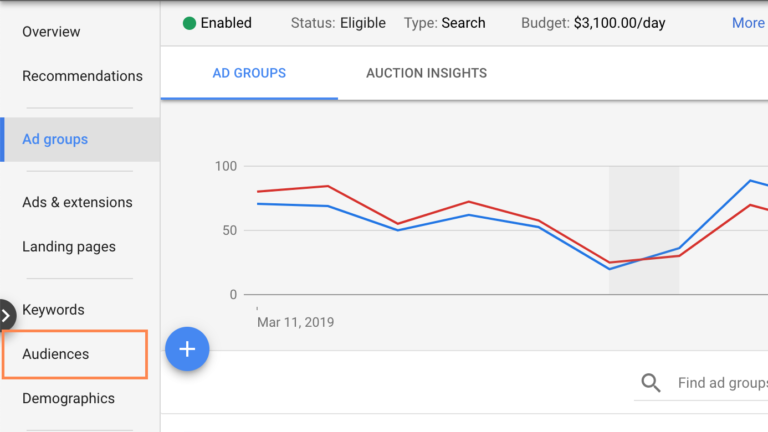
Then, click the blue pencil icon on that page to add an audience. You’ll then be able to choose whether you want to apply the audience at the campaign or ad group level and then set your targeting to Observation.

Once data starts flowing in, we’ll have separate line items for each of our Observation audiences and the ability to adjust our bid modifiers up or down for those users.
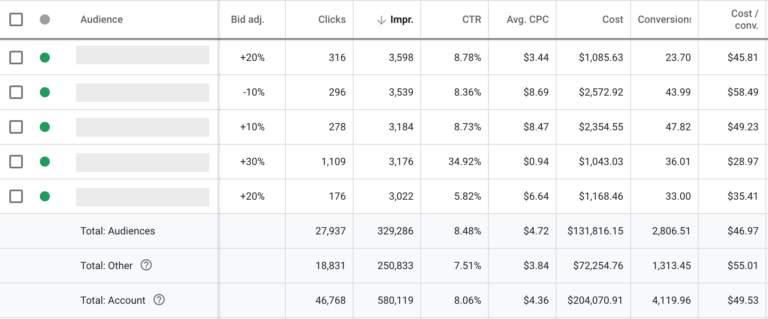
Now we’ll be able to see how each performs in relation to each other, but also in relation to users who are not in any of the lists we’ve added as observation layers.
We can start to understand how the users in our CRM differ from those not yet recorded and maybe try to find some patterns. And that’s a great place for the next strategy to come in.
4. List for Modeling Purposes Only
Nearly all platforms that have a customer upload option also have some form of Lookalike modeling in their arsenal of targeting options. So why not leverage it?
Think of that list of people you would love to find more of. It could be something like the following:
- All of your customer base
- Customers with revenue over $500
- Repeat purchasers
- Members who pay annual memberships rather than monthly
- Customers with specific job titles
- Users from companies in certain industries
Nearly every business owner I’ve talked to has had that one group of users within their database where they say, “I want more of them”. Well, this could be a great way to try and do just that.
Export your list of those folks, upload them to the platform, create a Lookalike, and see what happens.
These models certainly aren’t perfect, but you may be surprised what you find out about how that highly coveted audience behaves on different platforms.
5. Customer Uploads for Insights
The last option is likely the least used of all of the five. Within Google Ads, we’re able to upload a list of users and then get further insights into their make up.
Head into your account and find the Audience Insights tool that can be found in the upper left of the Audience Manager tab.
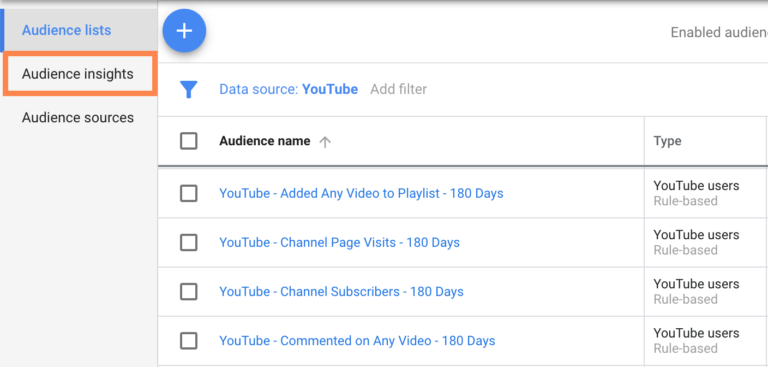
You can then choose from any type of audience…
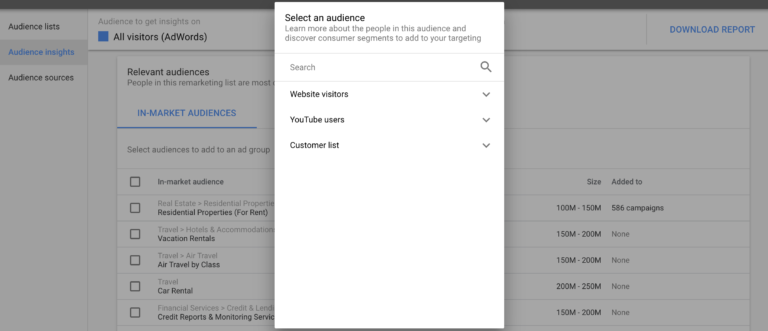
…and review how it stacks up against many of the target options on the GDN, including demographic information and In-Market & Affinity Segments.
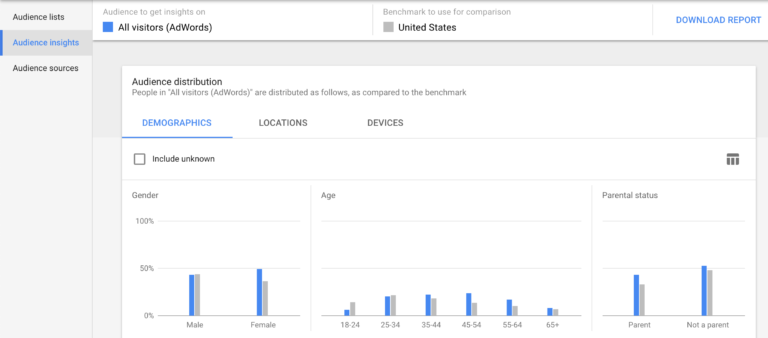
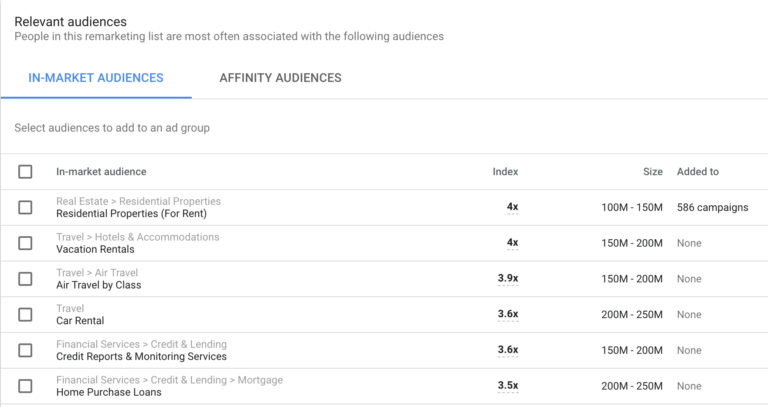
Conclusion
Don’t let the name “customer upload” stand in the way of you taking full advantage of this powerful tool.
Think of all the different segmentations you can make within your CRM user list and how you can leverage that in your PPC campaigns.
What are the strategies you’ve used for uploading customer lists? What have you seen work well in your campaigns? Share with us in the comments!
Happy uploading!
More Resources:
- 8 Dos & Don’ts of Search Audiences
- 5 Strategies for Successful Lookalike Audiences in Facebook Ads
- In-Market Audiences for Search: How & When to Use It
Image Credits
All screenshots taken by author, March 2019





![AI Overviews: We Reverse-Engineered Them So You Don't Have To [+ What You Need To Do Next]](https://www.searchenginejournal.com/wp-content/uploads/2025/04/sidebar1x-455.png)